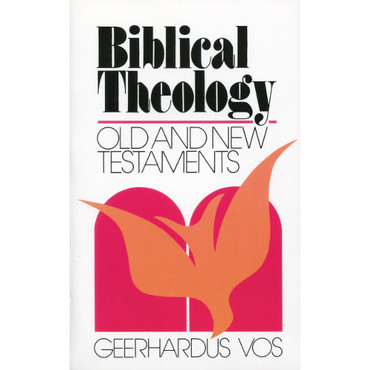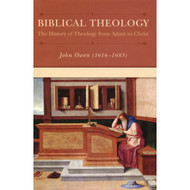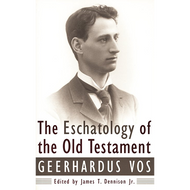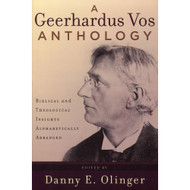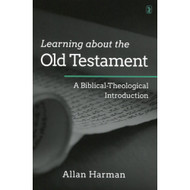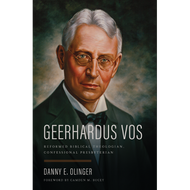Categories
Categories
Biblical Theology: Old & New Testament by Geerhardus Vos
Product Description
In the book Biblical Theology, Geerhardus Vos’ aim is no less than to provide an account of the unfolding of the mind of God in history, through the successive agents of his special revelation. Vos handles this under three main divisions: the Mosaic epoch of revelation, the prophetic epoch of revelation, and the New Testament.
Such an historical approach is not meant to supplant the work of the systematic theologian; nevertheless, the Christian gospel is inextricably bound up with history, and the biblical theologian thus seeks to highlight the uniqueness of each biblical document in that succession. The rich variety of Scripture is discovered anew as the progressive development of biblical themes is explicated.
To read these pages- the fruit of Vos’s 39 years of teaching biblical theology at Princeton- is to appreciate the late John Murray’s suggestion that Geerhardus Vos was the most incisive exegete in the English-speaking world of the twentieth century.
About the Author
Theologian, author, and long-time Professor of Biblical Theology at Princeton Theological Seminary, Geerhardus Johannes Vos was born in March, 1862 at Heerenveen, Netherlands. Raised in a pious home – his father was a minister in the Christelijke-Gereformeerde Kerk – Vos graduated from Amsterdam Gymnasium in 1881. When his father accepted a call to be the pastor of the Christian Reformed Church congregation in Grand Rapids, Michigan, the family immigrated to the United States.
Vos studied at the Theologische School (later renamed Calvin Theological Seminary) in Grand Rapids, Michigan, from 1881 to 1883 and afterwards at Princeton Theological Seminary (1883-85). Upon graduation from Princeton, he studied abroad at the University of Berlin (1885-86) and the University of Strasburg, where he was awarded a Ph.D in Arabic Studies (1888). Although Herman Bavinck and Abraham Kuyper tried to convince Vos to become professor of Old Testament Theology at the Free University in Amsterdam, he returned to the United States, and served as Professor of Didactic and Exegetical Theology at the Theologische School from 1888 to 1893.
At the persistence of William Henry Green, Vos moved to Princeton Theological Seminary in 1893 to serve as the school’s first Professor of Biblical Theology. The following year he married Catherine Frances Smith of Grand Rapids, Michigan, and they set up home on the campus of the Seminary, in a spacious house provided for Seminary professors. Teaching now dominated Vos’s life, although he also preached occasionally—mostly in the chapel of the Seminary on Sunday afternoons (the book Grace and Glory published by the Trust contains 16 of his sermons).
A prolific author, Vos’s published writings include articles, essays, reviews, poems, and biblical-theological studies on both Old and New Testament topics. The Teaching of Jesus Concerning the Kingdom of God (1903) and his study of Pauline theology, The Pauline Eschatology (1930), remain two of his most important works. Vos’s approach to the theology of the Old and New Testaments was published in 1948 as Biblical Theology (reprinted by the Trust in 1975).
Vos retired from Princeton in 1932 and spent his remaining days in Pennsylvania, California, and Grand Rapids, Michigan, where he died in August, 1949. His wife Catherine – who authored the well-known Child’s Story Bible – pre-deceased him in 1937, after 43 years of marriage. Their earthly remains are buried together in the tiny village of Roaring Branch, Pennsylvania, a rural community in the central part of the State, where they spent many quiet and enjoyable summer months together throughout the years of their marriage.
Endorsement
‘Quite unique. A thorough study of this volume will abundantly repay the student of Scripture. We recommend it most heartily.’ — EVANGELICAL PRESBYTERIAN
‘While Vos’s primary vocation was as a theological professor, his writings are characterized by an evident orthodoxy and devout faith which breath a spirit of reverence and adoration into all his publications and explain why they are still highly prized among readers interested in a Reformed approach to biblical theology.’ — JAMES M. GARRETSON
 Loading... Please wait...
Loading... Please wait... 
